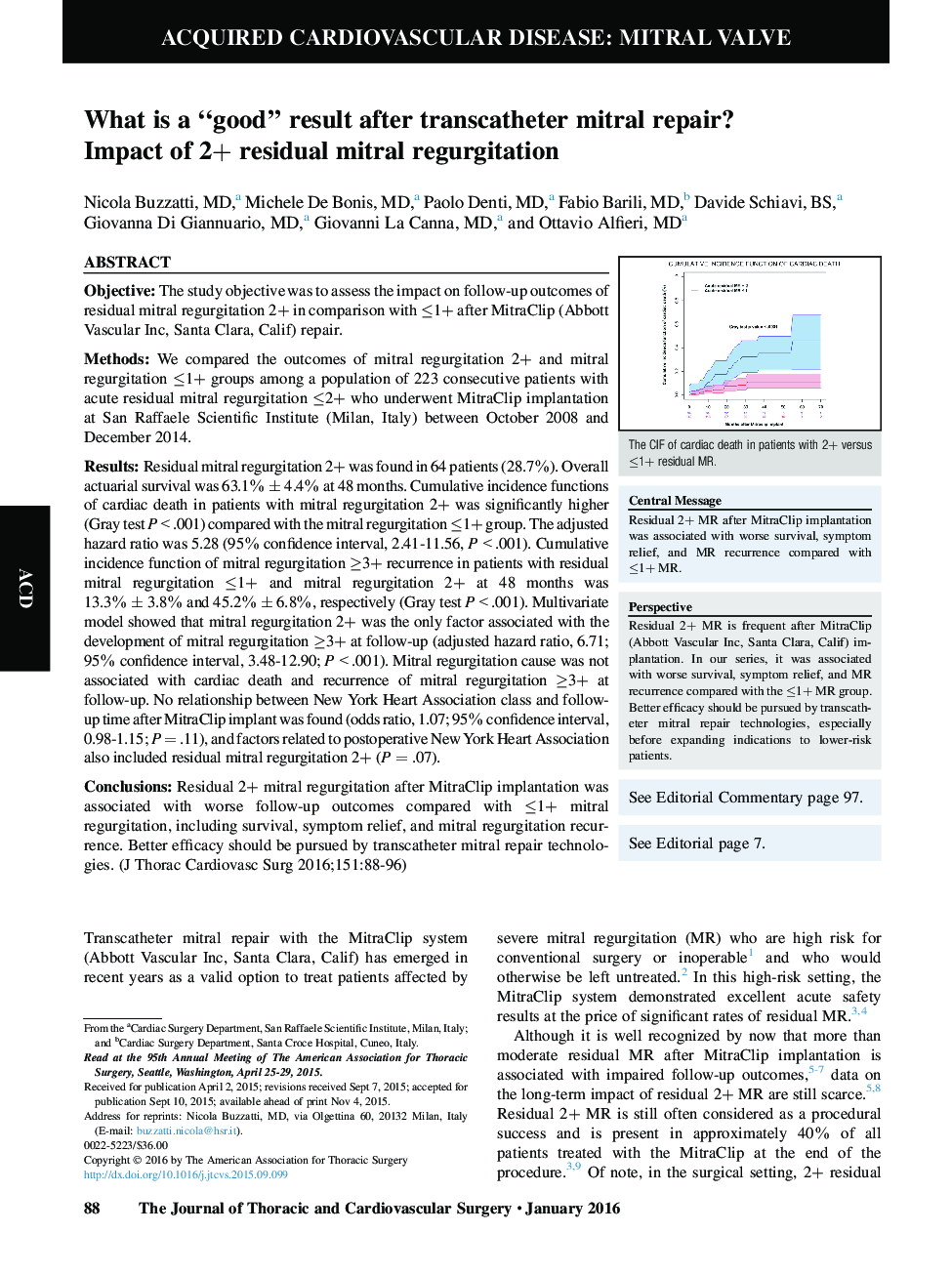| Article ID | Journal | Published Year | Pages | File Type |
|---|---|---|---|---|
| 2978856 | The Journal of Thoracic and Cardiovascular Surgery | 2016 | 9 Pages |
ObjectiveThe study objective was to assess the impact on follow-up outcomes of residual mitral regurgitation 2+ in comparison with ≤1+ after MitraClip (Abbott Vascular Inc, Santa Clara, Calif) repair.MethodsWe compared the outcomes of mitral regurgitation 2+ and mitral regurgitation ≤1+ groups among a population of 223 consecutive patients with acute residual mitral regurgitation ≤2+ who underwent MitraClip implantation at San Raffaele Scientific Institute (Milan, Italy) between October 2008 and December 2014.ResultsResidual mitral regurgitation 2+ was found in 64 patients (28.7%). Overall actuarial survival was 63.1% ± 4.4% at 48 months. Cumulative incidence functions of cardiac death in patients with mitral regurgitation 2+ was significantly higher (Gray test P < .001) compared with the mitral regurgitation ≤1+ group. The adjusted hazard ratio was 5.28 (95% confidence interval, 2.41-11.56, P < .001). Cumulative incidence function of mitral regurgitation ≥3+ recurrence in patients with residual mitral regurgitation ≤1+ and mitral regurgitation 2+ at 48 months was 13.3% ± 3.8% and 45.2% ± 6.8%, respectively (Gray test P < .001). Multivariate model showed that mitral regurgitation 2+ was the only factor associated with the development of mitral regurgitation ≥3+ at follow-up (adjusted hazard ratio, 6.71; 95% confidence interval, 3.48-12.90; P < .001). Mitral regurgitation cause was not associated with cardiac death and recurrence of mitral regurgitation ≥3+ at follow-up. No relationship between New York Heart Association class and follow-up time after MitraClip implant was found (odds ratio, 1.07; 95% confidence interval, 0.98-1.15; P = .11), and factors related to postoperative New York Heart Association also included residual mitral regurgitation 2+ (P = .07).ConclusionsResidual 2+ mitral regurgitation after MitraClip implantation was associated with worse follow-up outcomes compared with ≤1+ mitral regurgitation, including survival, symptom relief, and mitral regurgitation recurrence. Better efficacy should be pursued by transcatheter mitral repair technologies.
